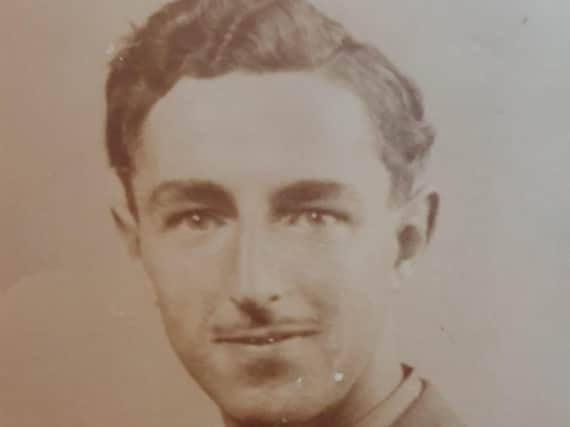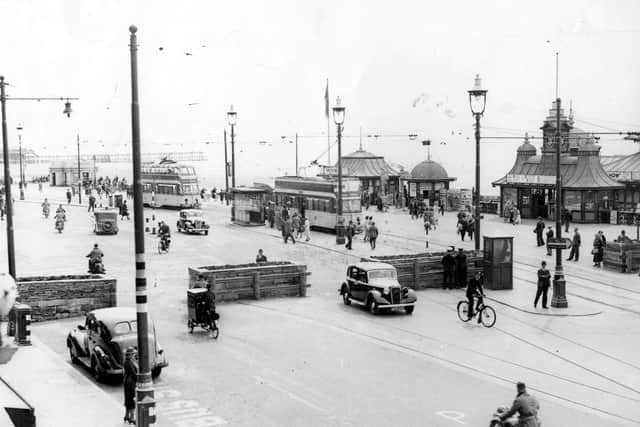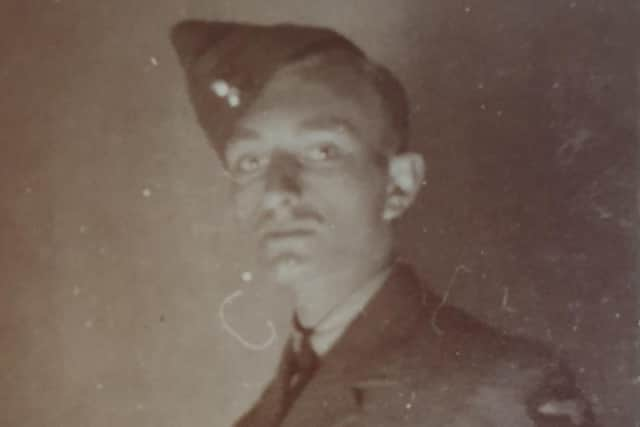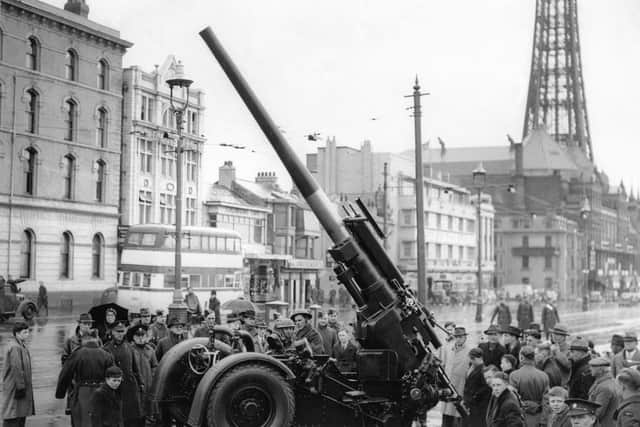My Father's War: 'Blackpool was as ready as it could be'


There are some remarkable similarities between what is happening in the world in 2020 as we struggle with the dreadful coronavirus pandemic and the way we responded as a nation in World War Two.
The feeling of a common enemy; the willingness of people to help each other; the speed with which combative measures are being put into place.
Advertisement
Hide AdAdvertisement
Hide AdI was brought up in a world that was still recovering from the effects of what happened between 1939 and 1945. Government surplus stores abounded; rationing was still in place years after hostilities ended; men took their sandwiches to work in redundant gas mask containers. Dad rarely spoke about the war. I knew he had served in the RAF in Gibraltar and elsewhere. Occasionally he would refer to some incident that took place, but it was difficult to put it into context. Like many ex-servicemen, my father took to the grave many of his memories of those years. I felt that it was important to preserve what facts were known in case future generations asked what he did in the war.


The War Begins
The day following the declaration of war on 3 September 1939, the British Expeditionary Force embarked for the European mainland to help oppose the German forces which were expected to invade Belgium and France in the near future.
It was 29 September 1939 and a register was being compiled of all residents in England and Wales – a snapshot of who spent the previous night at each address. The register was to be used as a basis for issuing ration books and, crucially, to identify all men eligible for military service.
The British Government had acted with commendable speed and efficiency in planning and compiling the register - a mammoth task. This, in marked contrast to their incredible lack of foresight in allowing Germany, after the carnage of the First World War, to re-arm and plunge the world into another major conflict.


Advertisement
Hide AdAdvertisement
Hide AdThe entry for 43 Lincoln Road, Blackpool identified my grandfather, Edwin James Bevan, as a master joiner.
Also present was his wife, Beatrice, her occupation quaintly described as `unpaid domestic duties`. Daughters Marjorie and Dorothy, elder son Jack and my father, Kenneth Bevan are also shown. Dad’s occupation is shown as joiner apprentice. He worked in the family business founded by Edwin and was 17 years of age.
White rings had been painted on all the elm trees lining Lincoln Road. This was done to prevent the residents banging into them during the blackout which was shortly to follow. The fading remains of these circles would still be visible when my brother John and I visited Lincoln Road with our parents in the 1950s.
In 1874 it was decided that Blackpool would benefit from the introduction of The Illuminations.


Advertisement
Hide AdAdvertisement
Hide AdThis far-sighted initiative had the effect of extending, by six weeks, the period when the holiday resort could attract visitors.
This year, again in response to the need for the blackout and to conserve precious resources, the lights were cancelled. They wouldn’t reappear until post-war austerity began to ease in 1949.
Things looked bleak for everyone, not least for my mother’s mother and her sister-in-law, Auntie Martha, who ran a boarding house within a mile of Lincoln Road. Not only was the holiday season shortened but they faced an uncertain future, not knowing how the war was going to affect the number of visitors.
Ironically the war would prove to be good for business.
Two large air bases were to be constructed resulting in the influx of many servicemen from countries such as Poland, the British colonies and, later on, the United States. In order to accommodate the newcomers, the government would insist that a certain number of rooms in guest houses were allocated specifically for that purpose. This would mean that rooms which would otherwise be vacant during the long winter months, would be put to use, the government paying a small but regular allowance for the service provided. This was all in the future, though. At that point my dad and my mother had not yet met. Part two: Fears at home Part three: Letters homeBlackpool Prepares
Advertisement
Hide AdAdvertisement
Hide AdAs 1940 dawned, Blackpool’s war effort started to accelerate. Rationing of food was introduced and would persist in one form or another until long after the war was over. It was feared that the Germans may initially invade Ireland then mount a seaborne attack on the North West coast. This would make Blackpool a key area and one which needed to be defended. Concrete pill boxes to house machine guns and other defences were swiftly erected and this process continued into the following year. These were referred to as `coastal crust` defences. Some were set up close to the beach and others were further inland.
Anti-aircraft defences were mounted on the sand dunes. Strategic areas such as RAF Squires Gate were given particular attention. Water towers were erected in case normal vital supplies were interrupted.
Road signs were blacked out to confuse the enemy and over 2000 air raid shelters were built to protect the eighty-five thousand residents of the town. A metal recycling bank was set up in Revoe Park to conserve materials which were necessary for the manufacture of the countless military items which were needed. On a more chilling note, the carrying of gas masks for every man, woman and child had become compulsory. Additionally, the Registrar’s office was supplied with thousands of extra blank death certificates and Raikes Garage in Church Street was used to stockpile large numbers of cardboard coffins.
Blackpool, like numerous other towns throughout Britain, was ready for what may lie ahead. Or as ready as it could be...
Comment Guidelines
National World encourages reader discussion on our stories. User feedback, insights and back-and-forth exchanges add a rich layer of context to reporting. Please review our Community Guidelines before commenting.